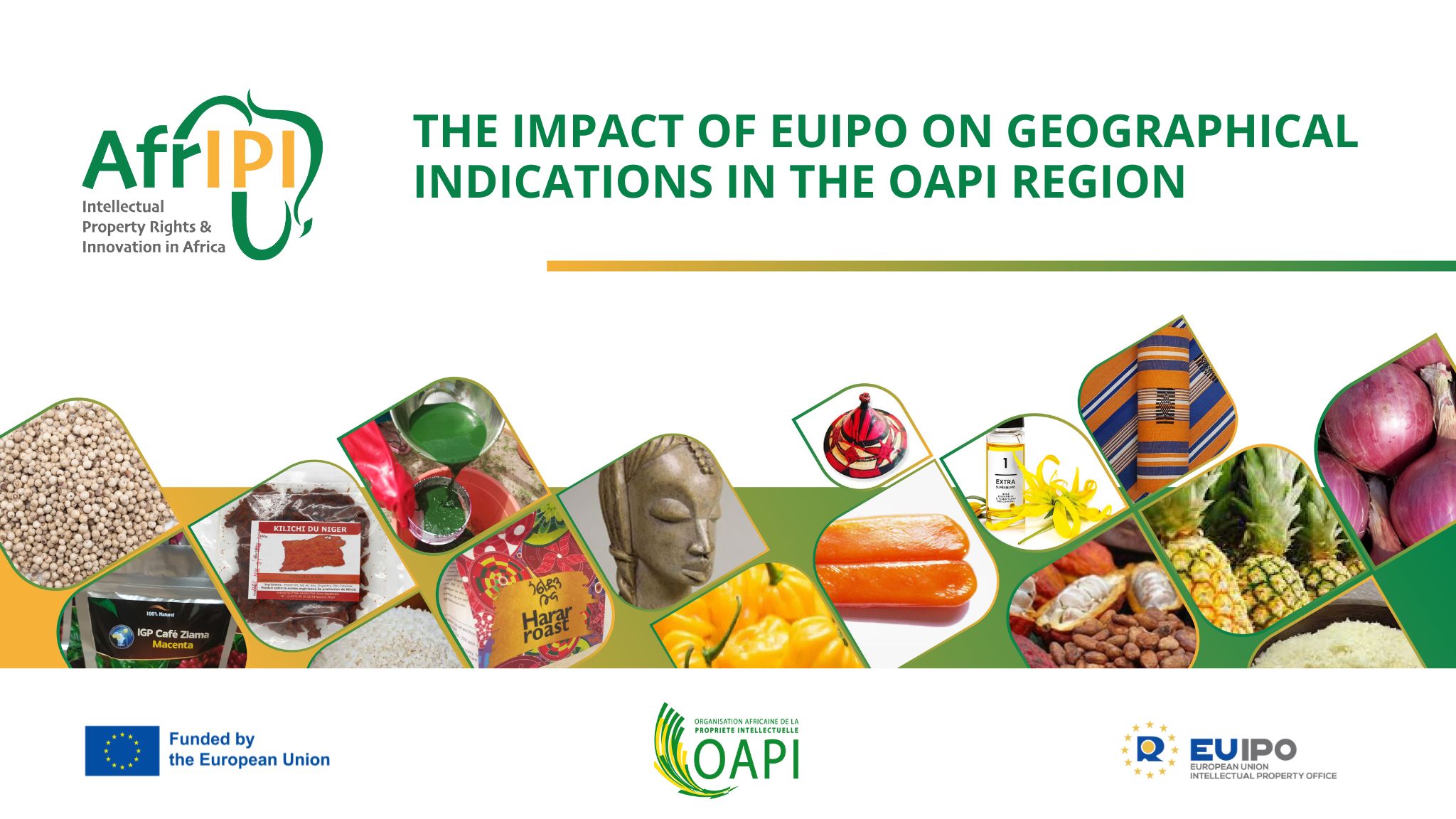The Impact of EUIPO on Geographical Indications in the OAPI region
In a region rich with cultural diversity, traditional craftsmanship, and biodiversity, Geographical Indications (GIs) are fast emerging as a game-changer for local development. Over the past four years, the European Union Intellectual Property Office (EUIPO), in the context of the EU-funded project Intellectual Property Rights and Innovation in Africa (AfrIPI), has played a pivotal role in building the GI system across Africa. In close strategic collaboration with the African Intellectual Property Organization (OAPI) and other intellectual property offices, the EUIPO has not only made African products with unique origins more visible, but it has also reinforced the policy, and the institutional and technical frameworks required to harness the full economic and cultural potential of GIs in the region.
The EUIPO launched the AfrIPI project in 2020, at a strategically significant time for GIs in Africa. The outcomes achieved up to that point, along with previous experiences at regional and national levels, had revealed the complexity of GIs. Additional contextual factors also emerged between the COVID-19 pandemic up to the launch of the African Continental Free Trade Area (AfCFTA). An evaluation report was written on GI projects implemented by the French Development Agency over the past 15 years. These developments meant that partners were better equipped to implement GIs across the continent, and introduced innovative approaches tailored to the African context and which aligned with the goal of achieving environmentally, economically, and socially sustainable GIs.
The EUPO’s comprehensive partnership with OAPI under the AfrIPI project has helped build the structural backbone of a functioning GI system, both at regional and national levels. Over the past four years, the project efforts have been geared towards:
enhancing the preparedness of stakeholders to prevent the emergence of ‘sleeping’ or registered GIs which are not actively used or commercially exploited; strengthening stakeholders’ capacity to ensure that registered GIs remain active and commercially viable, rather than becoming dormant
-
promoting institutional alignment through the drafting of a guide for the establishment and effective functioning of national GI committees;
-
contributing to promoting the OAPI system, with four GI applications submitted as a direct result of AfrIPI’s intervention;
-
contributing to the development of future guidelines on the control and traceability of GI products, notably through actions carried out with IGP ‘Kilichi Niger’, including knowledge exchange with the producers of ‘Viande Séchée du Valais’ through a study visit;
-
providing technical assistance to OAPI and its Member States to support prospective studies on potential GI products and facilitate GI registration processes;
-
strengthening continental coordination on GIs through its role as Secretariat of the GI Technical Working Group;
-
strengthening capacities through training workshops and tailored support for national GI focal points and OAPI liaison structures, enabling stakeholder engagement, evaluation of GI candidacies, and producer guidance throughout the GI process;
-
developing operational tools, including practical guides for national GI committees, procedural manuals, and awareness materials to ensure effective GI management and community outreach;
-
supporting marketing and branding efforts to enhance the visibility and market access of GI products, and equipping GI groups with the tools to position their products in domestic and international markets.
The fruits of this collaboration with OAPI are already evident: several African products have already gained recognition or are about to, each carrying a story that is deeply rooted in the place they are from and tradition. This is a testament to the technical and financial support, which has contributed to the development and registration of multiple products, supported by the AfrIPI project from 2020-2025. These include:
-
Poivre de Penja (Cameroon) – The first OAPI GI product, now an international culinary reference for pepper. Registered at the EU level
-
Kilichi du Niger (Niger) – A spiced, sun-dried meat currently progressing toward EU-level GI registration. Deposited for registration at the EU level
-
Ylang Ylang (Comoros) – Renowned for its rich fragrance, this essential oil plays a central role in the global perfumery industry and is a key ingredient in many luxury perfumes. Deposited for registration at the regional level
-
Pierre de Mbigou (Gabon) – A culturally significant soapstone carved by master artisans into symbolic sculptures, embodying centuries of ancestral knowledge. Deposited for registration at the regional level
-
Poutargue Imraguen (Mauritania) – A high-value fish roe delicacy prepared using age-old techniques by the Imraguen fishing community. Deposited for registration at the regional level
-
Spiruline du Tchad - Dihé (Chad) – A nutrient-rich, naturally harvested product deeply rooted in local diets, supporting both nutrition and livelihoods. Deposited for registration at the regional level
This progress aligns fully with the African Union’s Continental Strategy on GIs and contributes to the objectives of the African Continental Free Trade Area (AfCFTA) by facilitating intra-African trade, strengthening regional value chains, and promoting Africa’s identity on the global stage. Although significant progress had been made, more actions are needed to overcome the persistent shortcomings and further achieve the GI sustainable development goals.
The European Union Intellectual Property Office - EUIPO as an international registration authority responsible for the registration of craft and industrial Geographical Indications starting in 2025, stays committed to supporting the protection of African origin-products.
